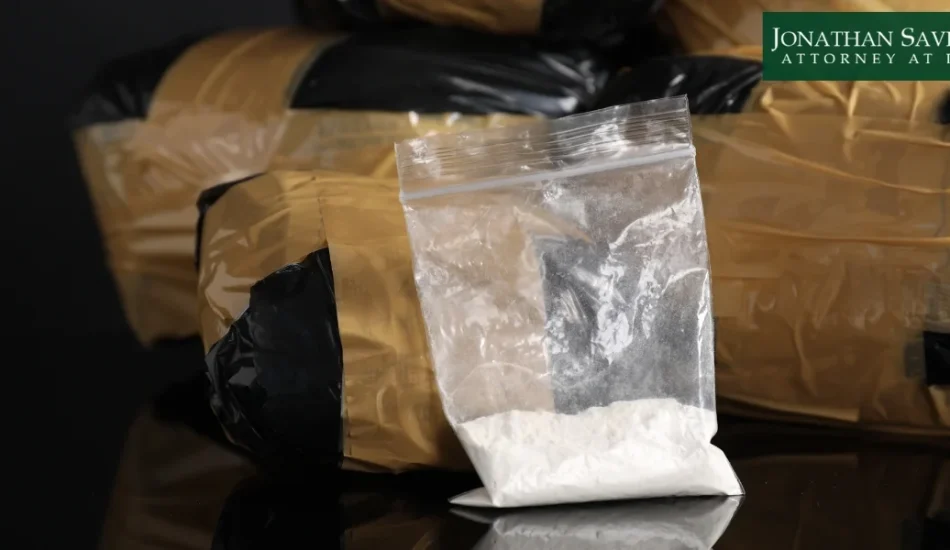|
|
Last Modified on May 10, 2025
The terminology for drug-related offenses can be confusing. A common question many people ask is, “What is the difference between drug trafficking and drug distribution in New York?” These terms may appear similar in everyday usage, but New York law defines them as separate legal concepts.
The legal distinctions generally depend on how much of a drug was involved, whether organized operations took place, and the purpose of the drug activity. The legal system separates trafficking from distribution because each offense leads to different penalties and presents unique legal difficulties. It’s essential to understand the specific charges against you when creating a successful defense against controlled substance allegations.
Definition of Drug Distribution in New York
Drug distribution in New York describes illegal activities where someone sells or delivers controlled substances to others. The distribution charge applies to single transactions and does not require evidence of large amounts or criminal networks.
New York Penal Law Article 220 makes it possible to face distribution charges for handing out controlled substances, regardless of whether money changes hands. In legal cases, prosecutors usually aim to demonstrate that a defendant planned to distribute drugs rather than use them personally.
The severity of the resulting penalties depends on both the drug type and its weight, as substances such as heroin or fentanyl result in harsher punishments.
What Constitutes Drug Trafficking in New York?
Drug trafficking describes the organized distribution or movement of controlled substances on a large scale. New York defines trafficking as manufacturing, transporting, or possessing large amounts of drugs with the intention to distribute them. Multiple individuals, money transactions, firearms involvement, and multi-jurisdictional distribution frequently occur in trafficking cases.
State statutes do not include “trafficking” as a legal term, but charges such as Operating as a Major Trafficker (Penal Law § 220.77) serve the same purpose. Federal authorities may still become involved, and mandatory minimum penalties often result from trafficking cases. Trafficking operations distinguish themselves through the combination of large quantities of products and organized business models aimed at generating profits.
In April 2025, New York Attorney General Letitia James revealed that 31 people were convicted of operating drug trafficking networks in both Central and Northern New York. Agents confiscated more than 150,000 envelopes filled with fentanyl or fentanyl-heroin combinations, along with nearly a pound of methamphetamine and a quarter kilogram of cocaine, during their investigation.
Quantity and Intent: Key Legal Distinctions
The distinction between trafficking and distribution charges often lies in the quantity of drugs and the structure of the alleged operation. Distribution charges can apply to any amount of a controlled substance, while trafficking (particularly under New York’s Operating as a Major Trafficker statute) requires proof of large-scale activity. This includes:
- Selling or possessing with intent to sell narcotics valued at $75,000 or more within six months
- Having a supervisory role in such an enterprise
Intent is another key factor. Prosecutors look for evidence of organized sales or repeated transactions to elevate charges from distribution to trafficking.
Distribution charges become trafficking cases when:
- Transactions involve multiple deals or large sums of cash.
- Supply chains reveal organized drug distribution.
A strong defense depends on accurately interpreting the definitions of quantity and intent within your legal situation.
Penalties for Distribution vs. Trafficking
New York distribution charges for drugs fall between Class B and Class D felonies, based on drug type and amount, which may lead to multiple years in prison. The legal system imposes stiffer punishments on trafficking charges that involve substantial quantities or organized operations.
New York’s Operating as a Major Trafficker statute carries a potential sentence of between 15 years and life in prison. Federal trafficking laws may become applicable in certain situations, which can result in stricter penalties. Increased quantities and organized operations both lead to more substantial legal exposure and increased chances of long-term imprisonment.
Building a Defense Against These Charges
Early legal intervention is essential for anyone accused of distribution or drug trafficking charges. Defense strategies might involve questioning the legality of police searches, disputing ownership and control of the drugs, and challenging the reliability of informants.
For trafficking charges, your lawyer may work to demonstrate that you did not meet the “major participant” criterion necessary for the most severe charges. Defense efforts in distribution cases often work to downgrade charges to possession or demonstrate no intention to sell drugs. The specific details of each legal case determine its result, while an experienced NYC criminal defense lawyer can greatly influence the final verdict.
FAQs
Q: What Is the Legal Definition of Drug Distribution in New York?
A: The illegal sale or transfer of regulated drugs defines drug distribution activities. Distribution charges do not depend on the quantity of drugs because intent to sell or proof of a transaction suffices. Felony charges can result from simply sharing or selling drugs directly to another person. The standard legal charge for drug distribution falls under New York Penal Law Article 220.
Q: Can You Be Charged With Trafficking for a One-Time Sale?
A: Prosecutors need proof of extensive or repeated activities to file trafficking charges in New York. When dealing with a single serious sale, the charge typically ranges from distribution to possession with intent unless it shows connections to a larger organized operation. Major trafficking charges require prosecutors to demonstrate ongoing, high-volume criminal activity.
Q: Are Distribution and Trafficking Ever Charged Together?
A: Drug cases often result in defendants facing multiple charges that are brought together at once. A person charged with trafficking drugs might receive additional charges for specific distribution acts or possession, and conspiracy. Multiple overlapping charges allow prosecutors to construct their case with greater flexibility, which requires defendants to hire strategic defense attorneys who can address each legal point.
Q: Can Federal Charges Apply to Drug Trafficking in New York?
A: Yes. Federal prosecutors become involved when the alleged trafficking includes large amounts of drugs, crosses state borders, or shows signs of organized activity. Federal drug trafficking charges bring mandatory minimum sentences and impose stricter penalties than state drug charges. The DEA and FBI are potential agencies that might participate in the investigation. Working with a defense attorney who understands both systems is essential when you face potential federal charges.
Contact the Law Office of Jonathan Savella
If you’re facing drug distribution or trafficking charges in New York, understanding the legal distinctions is crucial for your defense. At the Law Office of Jonathan Savella, we can provide strategic, informed representation tailored to the specifics of your case. Contact our firm today to protect your rights and future.





